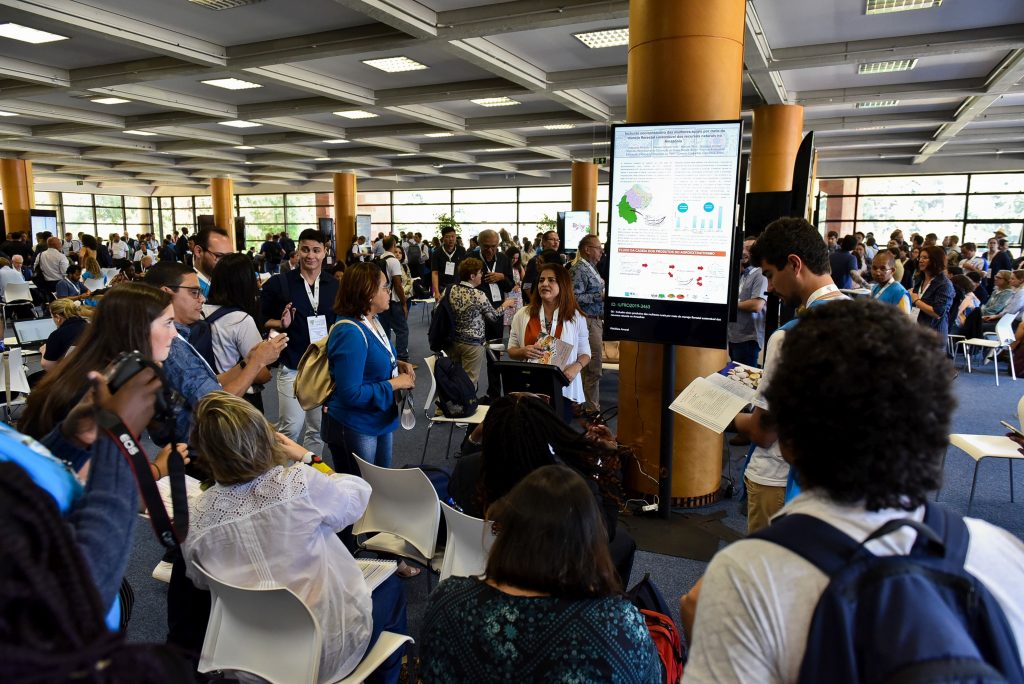Spotlight #79 – A Focus on Gender Equality in Forestry

When one thinks of forests, forestry and forest research, gender equality is probably not the first thing that springs to mind.
But it actually makes a lot of sense, explains Dr. Gun Lidestav, of the Department of Forest Resource Management at the Swedish University of Agricultural Science. Dr Lidestav is also Coordinator of the IUFRO Gender Equality in Forestry Task Force (TF).
“Forestry has always been about people as much as it is about trees and the biophysical conditions of this particular land use. However, forest research worldwide leans heavily toward the latter aspects,” she said.
“But now, forestry-related processes will be guided by the 17 Sustainable Development Goals (SDG) and the Agenda 2030 adopted by the United Nations.
“The 5th SDG deals with gender equality, and that has become, for forestry, a cross-cutting issue related to governance, policies and strategies at different societal and organizational levels,” she said.
There are different cultures and different forest issues in different parts of the world, so addressing the gender equality issue does not lend itself to a one-size-fits-all solution.
“We understand gender as a social and cultural construct. Gender and gendering processes play out differently in different contexts,” Dr. Lidestav said. “As researchers, and research organizations, we must be able to understand the interaction/relation between gender and context, e.g. how gender impacts forest(ry) and how forest(ry) impacts gender.
Therefore, for this TF, it has been crucial to have broad geographic and topic representation.” She notes that one of the strengths of her TF is that “within the team we have a broad range of different competencies in science, in research and in practitioners.
“We understand that policies, conventions and directives are tasks to be developed, agreed on and implemented by policy makers. But it is the duty of the scientific community to provide data, theories and methods to help policy makers understand the specific ways that gender shapes everyday lives, employment opportunities, knowledge production, and forest use,” Dr. Lidestav said.
“Therefore, integrating gender as a cross-cutting issue in the implementation of the IUFRO Strategy as well as strengthening the participation of scientists on equal terms, are the main objectives of the TF. This work will then provide a basis for gender mainstreaming processes within the IUFRO network, and hopefully beyond – i.e. advancing gender equality in forestry worldwide,” she said.
It won’t happen overnight. “Not everyone – and that can be true at all organizational or societal levels – thinks it is an important and relevant issue in which to become involved,” added Dr. Lidestav.
“An organization may have an overall strategy that supports gender equality. But, in those areas where men are dominant – forestry or research, as examples – men are the norm. And the understanding of gender and gender equality can then become a ‘women’s issue’ rather than an organizational one that involves both men and women. That is one of the major obstacles we have to overcome.”
The approach that her TF will take is to explain and promote gender equality as it relates to the scientific and research practices of IUFRO. And, by examining selected gender equality initiatives in different parts of the world, it will provide examples of research and policy interaction.

Dr. Lidestav’s goal for the Gender Equality TF is to have “an action plan proposal to be presented, discussed and agreed upon at the IUFRO 2024 World Congress in Stockholm, Sweden.
“The proposal will emerge from a solid evidence base, foster an inclusive mindset, and communicate and recognize progress. In this particular context, we will collect and analyze data to explain and advance gender equity and diversity in the forest research and policy practice interface.
“To anchor the proposal, inputs will be sought for a diverse set of groups within the IUFRO network through various consultations and strategic dialogues organized during major IUFRO events,” she said.
Find out more about the IUFRO Task Force on Gender Equality in Forestry:
https://www.iufro.org/science/task-forces/gender-equality-in-forestry/
In May 2020 Dr. Lidestav would have been the keynote speaker of an international networking conference entitled “Forests in Women’s Hands”, which had to be postponed due to the COVID-19 pandemic. The event shall now take place on April 12th – 14th, 2021, at WALDCAMPUS Austria, Traunkirchen, Austria: https://forstfrauen.at/en/konferenz-2021
The IUFRO TFs are established on a temporary basis during each 5-year IUFRO Board term and focus on emerging key forest-related issues. The nine current TFs will run till 2024 at which time their relevance will be assessed in relation to the forest issues of the day.
View all IUFRO Spotlights at http://www.iufro.org/media/iufro-spotlights/

Leave a Reply